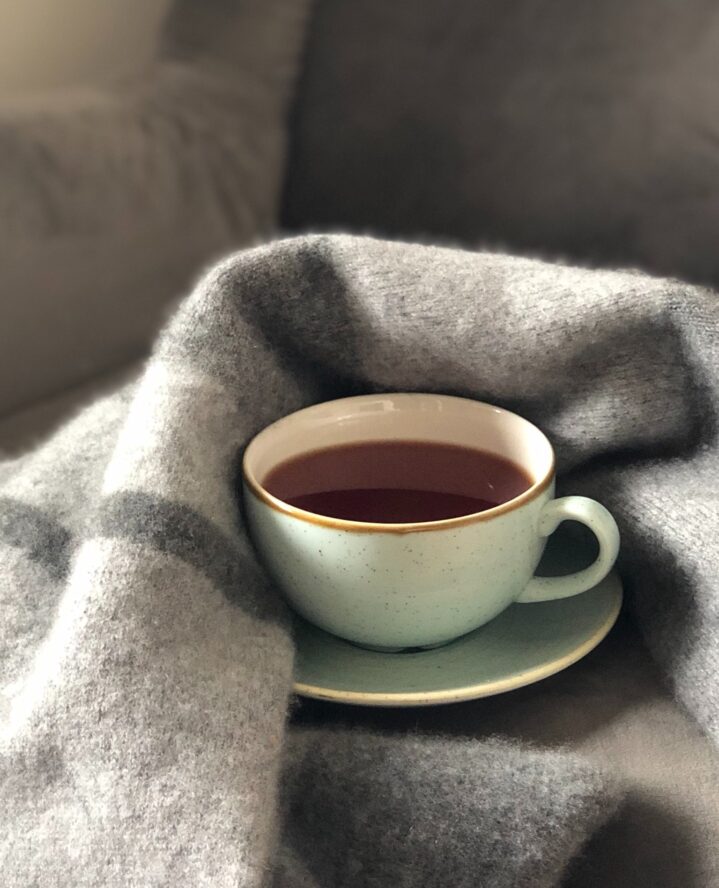Many adults have trouble falling asleep; and if they do fall asleep, they never come close to getting the suggested seven hours of rest each night. Some have resorted to “sleep aids,” oftentimes over the counter or even prescribed medications. Others, however, like more “natural” remedies like ashwagandha tea to promote sleep.
Ashwagandha, a sleep-inducing herb, is quickly gaining popularity in the Western world. It is often used to help with relaxation and calmness, which in turn can lead to that blissful sleep everyone seems to be chasing after. Different versions of this tea use different elements of the ashwagandha plant, such as the leaves, seeds, and fruit.
Let’s take a quick look at this natural remedy for restless nights.
What Is Ashwagandha?
Ashwagandha, otherwise known as winter cherry or Indian ginseng, is a shrub native to Asia and Africa. Historically, it is used in traditional medicine, with the roots and fruit utilized for ailments like diabetes, pain, and general fatigue. The herb falls under the category of an adaptogen, a phrase for herbs that aid the body’s ability to heal and defend itself. Stress reduction is one of these advantages of ashwagandha. Ancient customs attribute to the herb an ability to reduce stress and anxiety, two of the main factors that prevent many individuals from getting enough sleep.
Ashwagandha may help lower cortisol levels in the body.* Your body produces the hormone cortisol in reaction to extreme stress. By decreasing these levels, the herb may also prevent HPA-axis dysfunction, known as adrenal fatigue. Adrenal exhaustion can result from overworked adrenals because they cannot create enough cortisol for your body to function at its peak.
One’s diet and other environmental elements are two potential factors that play a large part in adrenal fatigue.
Forms Of Ashwagandha
Ashwagandha comes in a variety of forms. It is available as a powder, tea, pill, tincture, or gummies. The price can differ based on the brand, amount, and quality. Ashwagandha products can also be combined with other herbs or vitamins to make tea.
Follow the directions on the specific ashwagandha product you purchase if you want to use it for sleep. The best ashwagandha dosage is still debated and may vary amongst supplements. Ashwagandha should not be taken for longer than three months in a row. Additionally, before using ashwagandha, individuals should consult a doctor.
Making Ashwagandha Tea
Dried ashwagandha roots can be purchased online or at a neighborhood health food store, and making ashwagandha tea with them is extremely simple. Choose a well-known brand that’s trustworthy. This helps to ensure you obtain a high-quality product. Some products only sell ashwagandha tea to promote relaxation and lowering stress, while others may combine the herb with additional adaptogens.
Place one tea bag and one cup of water in a small pot to release the medicinal properties of the ashwagandha root. Once the water reaches a boil, reduce the heat to a low setting and let it simmer for ten to fifteen minutes. Alternatively, you can add one ashwagandha teabag to hot water and let it soak for five minutes before drinking. This provides a quick cup of tea that has calming and stress-relieving properties.
Best Time To Take Ashwagandha
No particular time is “best” for taking ashwagandha to sleep. However, taking ashwagandha in the evening is recommended before going to bed. This is due to ashwagandha’s relaxing impact, which can help calm individuals and facilitate sleep.
Ashwagandha Tea In The Evening
Consider including ashwagandha in your bedtime routine if you are using it for its calming and soothing properties. One well-liked method is making moon milk with ashwagandha powder, nutmeg, and other spices. This drink makes for a sweet, calming, sleep-inducing nighttime elixir.
Ashwagandha should be taken frequently if you want to get better sleep. You are more likely to reap this herb’s many advantages if you are more consistent. Never hesitate to adjust your schedule as your demands evolve.
It may also be preferable to take ashwagandha at night rather than in the morning if you frequently experience stomach distress or other gastrointestinal problems.
Ashwagandha Tea In The Morning
You will not experience ashwagandha’s effects or benefits right away, unlike some sleep aids and supplements that start working practically instantly. It may take a few weeks of regular use before noticing a difference in your sleep pattern.
Some suggest taking ashwagandha with breakfast or a small snack. This will help to avoid an upset stomach from taking the supplement on an empty stomach. To assist in coating your stomach and minimizing discomfort, you can add the supplement to your preferred smoothie or beverage.
Medicinal Alternative: Ashwagandha Tea
Ashwagandha is a popular adaptogen that has a wide range of health advantages. As a natural remedy providing calm and a relaxed mindset, it makes for a great alternative to prescription medication. You can take ashwagandha whenever it is most fitting because it takes time to start working. However, if you have stomach discomfort, you should take it with food or at night. The optimal time to consume ashwagandha is generally when you can most easily and consistently do it.
*”These statements have not been evaluated by the Food and Drug Administration. This product is not intended to diagnose, treat, cure, or prevent any disease.”
popular posts
- 1It’s Black Business Month, So Let’s Go Shopping and #BuyBlack!
- 2These Home Decor Items Will Instantly Make Your Space Look Outdated
- 3Black-Owned Home Decor Stores To Support Across the United States
- 4A Look Inside Elon Musk's Tiny $50,000 House
- 57 Black and Multicultural Designers To Follow For Design Inspo
Bedroom
FOLLOW ALONG ON INSTAGRAM
#homeandtexture
Find us on social for more home inspiration where culture, personal style, and sophisticated shopping intersect to help you create a home where you love to live.




